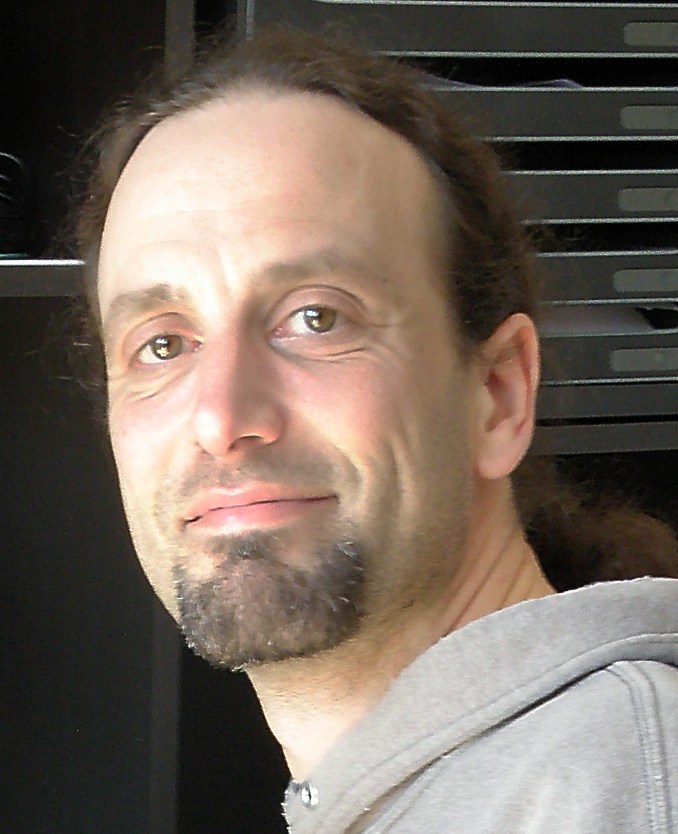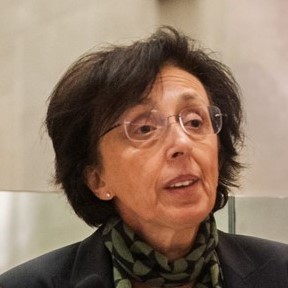Nicola Marzari - EPFL
The great mysteries of computational science, and the marvelous opportunities
Claudia Filippi - University of Twente,
Anthony Scemama - University of Toulouse III
Targeting Real chemical accuracy at the EXascale
Giulia Galli - University of Chicago and Argonne National Laboratory
The long and winding road: predicting and designing material and molecular properties through computation
Thursday June 18 2020
Nicola Marzari

The great mysteries of computational science, and the marvelous opportunities
The theoretical, algorithmic and computational prowess of the last decades has brought together a paradigm shift in our scientific approach, especially felicitous for computational condensed matter physics, chemistry, and materials science. I'll illustrate with a few examples the present strengths, challenges and opportunities in the field, nowadays driven by collective ecosystems of scientists, ideas, and codes that allow to greatly accelerate our capabilities to understand, predict, and design novel or complex materials. I'll conclude trying to predict or influence the future - what scientific challenges to address, what political and policy ones.
Nicola Marzari holds the Chair of Theory and Simulation of Materials at EPFL, where he is also the director of the MARVEL National Centre for Computational Design and Discovery of Novel Materials. He is the current chairperson of the Psi-k Charity and Board of Trustees, and an Excellence Chair at the University of Bremen.
Claudia Filippi

Targeting Real chemical accuracy at the EXascale
Quantum mechanical simulations play an important role in scientific and industrial applications, where understanding at the atomistic and electronic level is needed. In this context, density functional theory is generally the method of choice thanks to its relatively low computational cost and ability to appropriately describe the electronic properties of a variety of systems. Despite the many successes, there are however materials or classes of materials properties (e.g. magnetic systems, photo-induced processes, non-covalent interactions), where the mean-field picture becomes insufficient, and the fully correlated nature of the system must be considered. The computational cost of high-accuracy quantum mechanical approaches is orders of magnitudes larger than the cost of density functional theory, and their implementation must be reconsidered in order to take advantage of the architecture of modern and future supercomputers.
The TREX European Center of Excellence (CoE) will start in October. It aims at developing and promoting an open-source, high-performance software platform in the domain of high-accuracy (stochastic) quantum chemical simulations, designed for the upcoming Exascale architectures. Here, we will present the main aspects of the TREX CoE and, in particular, describe our strategy to design a high-performance library for quantum Monte Carlo simulations.
Claudia Filippi is professor in Computational Chemical Physics at the University of Twente in the Netherlands. She received her PhD from Cornell University, USA, in 1996 and, after a postdoc at the University of Illinois at Urbana-Champaign, USA, she was a lecturer in Physics at University College Cork, Ireland, from 1998 to 2001. She then moved to the Netherlands as assistant professor at the University of Leiden and, since 2008, is professor at the University of Twente. Her research is in the field of electronic structure and multiscale simulations and, currently, focuses on methodological developments for investigating light-induced phenomena in (bio)molecular systems within the framework of stochastic quantum Monte Carlo methods.
Anthony Scemama

Targeting Real chemical accuracy at the EXascale
Quantum mechanical simulations play an important role in scientific and industrial applications, where understanding at the atomistic and electronic level is needed. In this context, density functional theory is generally the method of choice thanks to its relatively low computational cost and ability to appropriately describe the electronic properties of a variety of systems. Despite the many successes, there are however materials or classes of materials properties (e.g. magnetic systems, photo-induced processes, non-covalent interactions), where the mean-field picture becomes insufficient, and the fully correlated nature of the system must be considered. The computational cost of high-accuracy quantum mechanical approaches is orders of magnitudes larger than the cost of density functional theory, and their implementation must be reconsidered in order to take advantage of the architecture of modern and future supercomputers.
The TREX European Center of Excellence (CoE) will start in October. It aims at developing and promoting an open-source, high-performance software platform in the domain of high-accuracy (stochastic) quantum chemical simulations, designed for the upcoming Exascale architectures. Here, we will present the main aspects of the TREX CoE and, in particular, describe our strategy to design a high-performance library for quantum Monte Carlo simulations.
Anthony Scemama is a research engineer at the Laboratoire de Chimie et Physique Quantiques (CNRS - Université de Toulouse, France), focusing on the development and implementation of computational methods and parallel algorithms for quantum chemistry. His expertise lies at the interface between high-performance computing and computational chemistry, and he is the main author of the massively parallel quantum Monte Carlo code QMC=Chem, and of Quantum Package, a software for making high-accuracy calculations with selected configuration interaction. In the context of the TREX European Center of Excellence, he is coordinating the development of the QMCkl library.
Giulia Galli

The long and winding road: predicting and designing material and molecular properties through computation
I will briefly describe examples of properties of materials predicted using simulations rooted in first principles theories of matter, and I will then discuss some of the open challenges involved in enabling scientific discoveries by computation. Challenges include theoretical and algorithmic advances required to broaden the scope of properties accessible by ab initio simulations, the use of changing computer architectures, including disruptive changes that are brought about by quantum computers, as well as the need for innovative methods to collect, verify and use data generated by simulations.
Giulia Galli (https://en.wikipedia.org/wiki/Giulia_Galli) is the Liew Family professor of Electronic Structure and Simulations in the Pritzker School of Molecular Engineering and Professor of Chemistry at the University of Chicago. She also holds a Senior Scientist position at Argonne National Laboratory (ANL) and she is the director of the Midwest Integrated Center for Computational Materials (MICCoM). Her research activity is focused on the development and use of theoretical and computational methods to understand and predict the properties and behavior of materials (solids, liquids, and nanostructures) from first principles.
Q & A

 About
About
